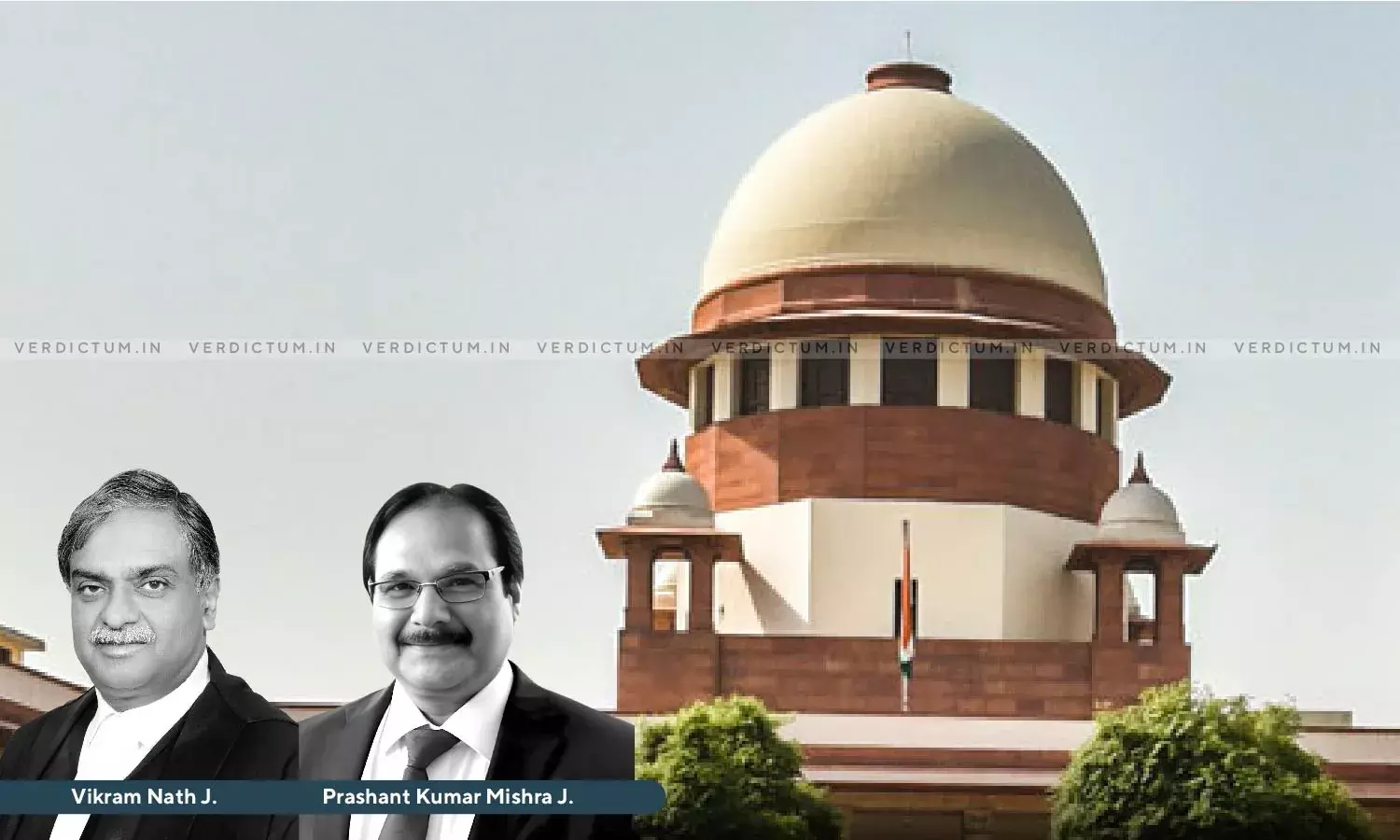Award Of Permanent Alimony Should Be For Ensuring A Decent Living Standard For Wife: SC Directs Husband To Pay ₹2 Cr To Wife
The Supreme Court emphasised that the award of maintenance or permanent alimony should not be penal but should be for the purposes of ensuring a decent living standard for the wife.
The Court was dealing with criminal appeals preferred by the wife against the order of the Delhi High Court by which it directed the husband to pay only 20% of the total arrears of interim maintenance granted by the Additional Sessions Judge.
The two-Judge Bench of Justice Vikram Nath and Justice Prashant Kumar Mishra enunciated, “It is not in dispute that the respondent has the legal obligation as also the financial capacity to maintain his wife after dissolution of marriage. It is also necessary to ensure that the award of maintenance or permanent alimony should not be penal but should be for the purposes of ensuring a decent living standard for the appellant wife. Considering the material on record, the factors stated above, the considerations noted herein, and the arguments advanced by the learned senior counsel on both sides, this Court is of the opinion that the demand made by the appellant is exceptionally high but, at the same time, the amount offered by the respondent is insufficient in the broader rubric of maintenance considerations.”
Senior Advocate Gaurav Bhatia appeared on behalf of the appellant while AOR Sameer Kumar appeared on behalf of the respondent.
Brief Facts -
The marriage between the parties was solemnized in 2015 and within one year, an FIR was registered based on a complaint made by the appellant/wife under Sections 498A, 323, and 504 of the Indian Penal Code (IPC) and Sections 3 and 4 of the Dowry Prohibition Act, 1961 (DP Act). The High Court referred the parties to mediation and thereby granted stay on arrest of the respondent/husband. The wife then preferred an application under Section 12 of the Protection of Women from Domestic Violence Act, 2005 (DV Act) wherein an application seeking interim maintenance was also filed by her. The Judicial Magistrate directed the husband to pay interim maintenance of Rs. 35,000/- to the wife. Both the parties challenged this order through two separate appeals before the Additional Sessions Judge, who directed the husband to pay monthly maintenance of Rs. 45,000/- to the wife and Rs. 55,000/- to her daughter. The appeal preferred by the husband was dismissed.
Being aggrieved, the husband approached the High Court and the matter was again referred to mediation. However, the mediation failed and the wife approached the Additional Civil Judge. The summons were challenged by the husband before the High Court and hence, the same were stayed. It directed expeditious disposal of the wife’s application. Upon the husband’s application, the proceedings were transferred to Tis Hazari Courts, Delhi. Thereafter, the wife filed a petition seeking appropriate directions including attachment of the accounts of the husband and the Delhi High Court directed him to pay 10% of total arrears of interim maintenance as immediate interim relief. While finally disposing of the wife’s petition, the High Court directed the husband to pay 20% of the total arrears (Rs. 65,00,000/-) of interim maintenance but rejected the prayer for attachment of his bank accounts. Being still aggrieved, the wife approached the Supreme Court.
The Apex Court in view of the facts and circumstances of the case observed, “Respondent has vehemently contested this and has impressed upon his submission that the daughter is appellant’s child from her previous marriage and she had received Rs.40 Lakhs as permanent alimony in that case towards the maintenance of the appellant and her daughter. She has submitted that her assets include certain immovable properties which she bought in the last few years.”
The Court further noted that both the parties appear to have similar standards of living which the wife continued to enjoy after their separation as well. However, it added that though both are well qualified and gainfully employed, the husband earns approximately five times the monthly income of the wife.
“Respondent-husband has certain obligations towards three dependants, his own expenses, and certain bank loans, but he also evidently has the financial capacity to maintain his former wife. … This Court explored the possibility of one-time settlement between the parties and in the course of the proceedings, the appellant-wife had put forth a demand of Rs. 5 to 7 Crores as one-time settlement which would cover her maintenance expenses and necessary requirements. On the other hand, the respondent-husband expressed his willingness to pay only Rs. 50 Lakhs towards permanent alimony, submitting that the appellant is employed, has several assets, and that he has no obligation to maintain her daughter as he never adopted her”, it said.
The Court, therefore, keeping in view the totality of the circumstances, the social and financial status of the parties, their current employments as well as future prospects, standards of living, and their obligations, liabilities, and other expenses, observed that a one-time settlement amount of Rs. 2 Crores would be a balanced and fair amount and the same would also cover all pending and future claims. Thus, it fixed the said amount as permanent alimony to be paid by the respondent to the appellant within a period of four months.
Accordingly, the Supreme Court allowed the appeals, set aside the impugned orders and judgments, disposed of the pending cases, granted decree of divorce, and directed the husband to pay Rs. 2 crores towards permanent alimony to the wife.
Cause Title- Kiran Jyot Maini v. Anish Pramod Patel (Neutral Citation: 2024 INSC 530)
Appearance:
Appellant: Senior Advocate Gaurav Bhatia, AOR Pawanshree Agrawal, and Advocate Utkarsh Jaiswal.
Respondent: AOR Sameer Kumar




